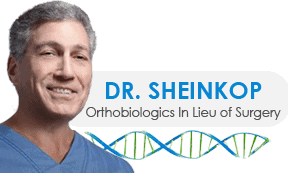Description of Procedure or Service
Mesenchymal stem cells (MSCs) have the capability to orchestrate cell differentiate into a variety of tissue types, including various musculoskeletal tissues. Potential uses of MSCs for orthopedic applications include treatment of damaged bone, cartilage, ligaments, tendons and intervertebral discs. Stimulation of endogenous MSCs is the basis of procedures such as bone marrow stimulation (e.g., microfracture) and harvesting. Bone marrow aspirate is considered to be the most accessible source and thus the most common place to isolate MSCs for treatment of musculoskeletal disease. The U.S. Food and Drug Administration (FDA) has stated that cell-based therapies are one of the most rapidly advancing approaches intended to repair, replace, restore, or regenerate cells, tissues and organs
While concentrated autologous MSCs do not require approval by the U.S. Food and Drug Administration (FDA); Mesenchymal stem cell therapy is considered investigational for all orthopedic applications, including use in repair or regeneration of musculoskeletal tissue. Since as of this writing, the Corporate Insurance world does not cover investigational services or procedures, Cellular Orthopedic interventions are not indemnified. It is a self pay undertaking.
The use of mesenchymal stem cells (MSCs) for orthopedic conditions is an active area of research. Despite this research into the methods of treatment, there are uncertainties regarding the optimal source of cells and the delivery method. Current available evidence on procedures using autologous bone-marrow-derived mesenchymal stem cells (MSCs) for orthopedic indications in humans consists primarily of case series and small non-randomized comparative trials with insufficient data to evaluate health outcomes. In addition, expanded MSCs for orthopedic applications are not FDA approved (concentrated autologous MSCs do not require FDA approval). Due to the lack of evidence that clinical outcomes are improved and the lack of regulatory approval, use of stem cells for orthopedic applications is considered investigational.
The above is in part taken from information to be found by searching Corporate Medical Insurance Policy via the internet. As you are aware if you are a reader of this Blog or as you will become aware after reading this Blog, the members of the Regenexx Network are gathering outcomes data that could result in a future change of Corporate Indemnification Policy for Regenerative Medicine. Actually, a corporate policy review for BCBS is scheduled next month.
In the mean time, a mailing from the AARP last week put everything into perspective and it came as an offering from AARP-Advantages having to do with protection for your pet, Petplan. “Every six seconds a pet parent is faced with a vet bill for more than $3,000.” What follows are some of the costs associated with your pet, the cost of caring:
Ear Infection—– ————–$4,048
Hip Dysplasia——————-$9,808
Ingestion of foreign body—-$9,389
Periodontal disease————-$2,651
Motor vehicle accident——-$11,695
I think you get the message. It is my job to make sure you get as good care and as good an outcome as you seek for your pet and we certainly cost less. 847 390 7666 to schedule appointment
Tags: arthritis, athletes, Benefits and Risk, bone marrow, Bone Marrow Concentrate, Clinical Studies, Concentrated Stem Cell Plasma, FDA, Hip Replacement, Interventional Orthopedics, joint replacement, Knee Pain Relief, medicine, Orthopedic Care, Orthopedics, Osteoarthritis, Pain Management, Pilot Study, Regenerative, Regenexx, stem cells, treatment
